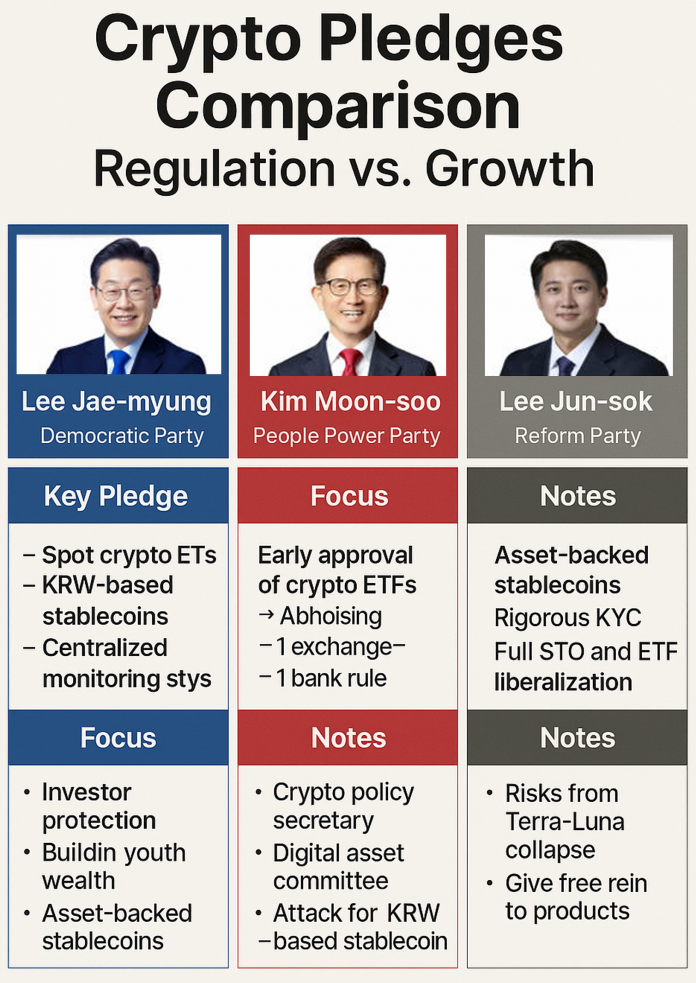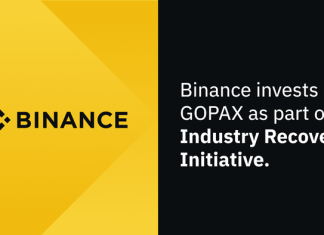
With the June 3rd presidential snap election fast approaching, major South Korean candidates are fiercely unveiling crypto-related pledges aimed at winning over the country’s 18 million virtual asset investors—many of whom are in their 20s and 30s.
Democratic Party candidate Lee Jae-myung focuses on regulated institutionalization of the crypto market, pledging to introduce spot crypto ETFs, build a centralized monitoring system, and promote lower transaction fees. He also called for the issuance of KRW-based stablecoins to prevent capital flight and secure digital sovereignty in the global market.
On the other side, People Power Party’s Kim Moon-soo proposes a bold pro-growth strategy, including early approval of crypto ETFs, allowing public institutions like NPS and KIC to invest, and abolishing the “1 exchange–1 bank” rule. His plan includes creating a crypto policy secretary at the presidential office and a digital asset committee under the Prime Minister’s Office.
Meanwhile, Reform Party’s Lee Jun-seok criticized the idea of a KRW stablecoin, citing the Terra-Luna collapse. He instead advocates for asset-backed stablecoins, rigorous KYC enforcement, and full liberalization of crypto products like STOs and ETFs.
Despite these promises, industry insiders remain skeptical, noting that similar pledges made in past elections were rarely fulfilled. Analysts warn that credible implementation and investor protection frameworks are far more critical than vote-driven declarations.
With crypto investors now accounting for nearly one-third of the electorate, the digital asset agenda could be a decisive factor in this year’s presidential race.






